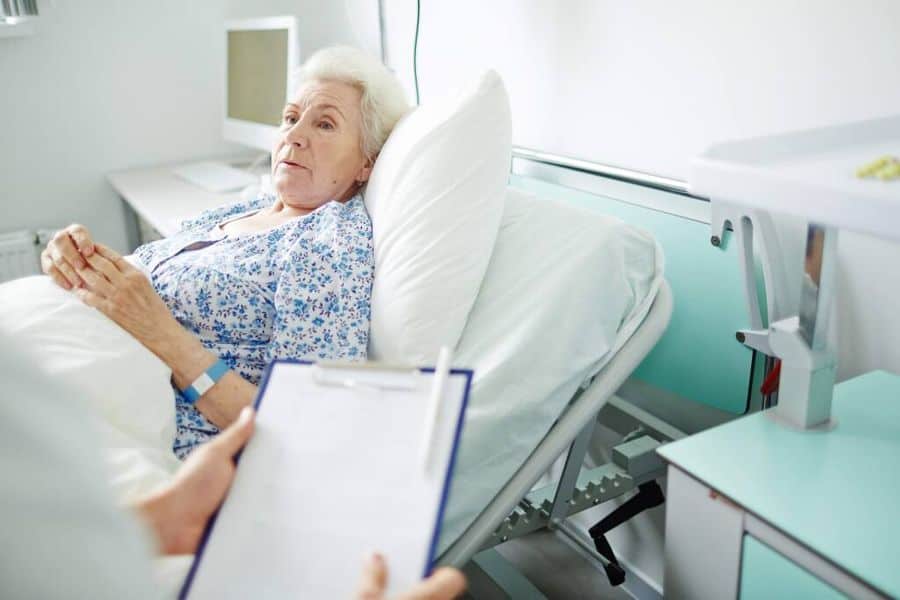InnoScot Health supports new initiative developing health and social care innovators

NHS Scotland partner InnoScot Health is proud to be part of a collaborative programme aiming to develop fresh health and social care innovations that can help solve clinical problems.
Led by Heriot-Watt and Edinburgh Napier Universities with InnoScot Health support, the initiative – labelled a “first of its kind research collaboration” – has seen engineering and nursing students pooling capabilities and know-how to hone breakthrough ideas.
It is hoped that the programme could help to progress innovations into products, leading to better patient outcomes while aiding healthcare staff in integrating innovative approaches into their daily activities.
InnoScot Health signed a Memorandum of Understanding (MoU) with Heriot-Watt’s Medical Device Manufacturing Centre (MDMC) in 2022, leveraging significant expertise to accelerate medical and healthcare opportunities.
The organisation has now helped to encourage what it calls “the next generation of health and social care innovators” by providing real world project briefs to teams of Heriot-Watt engineering students while helping them build consulting and client engagement skills.
The promising ideas from NHS Scotland innovators were first submitted to InnoScot Health, which has since acted as their client and liaison point.
The learnings of the student engineering project teams – enhanced by clinical insights from Edinburgh Napier University’s nursing students and access to its specialised clinical simulation facilities – are now expected to lead to improved co-designed projects.
There are currently three ideas being developed, each of which have originated from different health boards across the country – a catheter redesign from NHS Fife; cannula cuff from NHS Forth Valley; and wobble stool from NHS Grampian.
InnoScot Health Innovation Manager Fiona Schaefer said: “Collaborating on this Heriot-Watt and Edinburgh Napier University link-up offers an excellent and important opportunity for engineering students to learn more about the demands of health and social care, to understand how products are used, and see a simulated NHS environment in action.

“Likewise, nursing students and healthcare professionals can offer feedback on prototypes with the opportunity to test them more easily and safely than would have been possible by going into hospitals and healthcare settings.
“At the same time, they have also been encouraged to think about innovation, to realise that they have a lot to offer, and recognise the value of their know-how for future career progression. We hope this inspires them to see opportunities to develop new ideas when they soon start working in health and social care as registered healthcare professionals.”
She added: “Developing NHS ideas with student teams offers a great way to take forward early ideas to get closer to practical solutions. It’s clear that all three teams are really engaged, and we’re excited by the possibilities. I have also recently spoken to Occupational Therapy and Physiotherapy Masters students who have innovation modules as part of their course so hope there may be new avenues of innovation to explore with them too.”
Maïwenn Kersaudy-Kerhoas a Professor in Microfluidic Engineering at Heriot-Watt University and the lead academic for its new global research institute in Health and Care Technologies, has been described by InnoScot Health as “instrumental” in realising the link-up with Edinburgh Napier University through its Professor of Simulation and Clinical Skills, Cathal Breen.
Maïwenn said: “This collaboration will ensure an excellent student experience and we are very enthusiastic about the interface between nursing and engineering.
“Nurses are the closest to patient needs on a daily basis. By championing this first-hand knowledge and expertise, we enable nurses to co-create and help deliver innovation. Alongside this, our engineering students benefit from detailed real-world feedback on their health and care engineering concepts.”
Cathal Breen, Professor of Simulation and Clinical Skills at Edinburgh Napier, said: “Nurses are an untapped reservoir of innovative solutions for the health and care sector.
“In this new agreement, our students will identify potentially suitable clinical problems and work with engineering students at Heriot-Watt to design solutions to real-life clinical problems. It is hugely exciting.”
InnoScot Health works in partnership with NHS Scotland to identify, protect, develop and commercialise healthcare innovations to improve patient care. Recently it responded to the EU agreeing to a landmark deal on the regulation of artificial intelligence (AI), stating that it was a welcome development, but that it must also remain open to change while ensuring global competitiveness.


